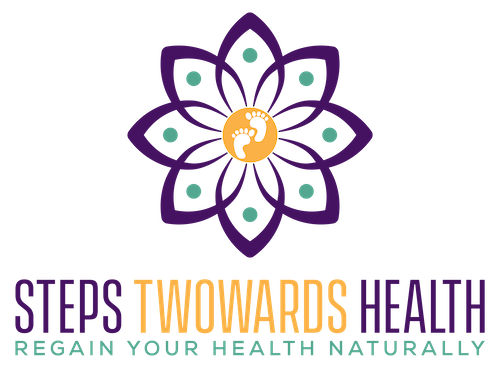Liver Health
The liver is the largest internal organ with many important jobs such as detoxification, metabolism of macronutrients (fats/carbs/proteins), storage site for energy (glycogen) and vitamins and minerals, production of bile and cholesterol, and the regulation of hormones. These are just a few functions, as the liver is known as the body’s chemical factor.
When the liver is stressed from poor diet, medications, alcohol, and toxins (both endo and exotoxins), it can become imbalanced. Symptoms of an imbalanced liver include headaches, memory and mood issues, weight and metabolism problems, skin irritations, hormone imbalances (PMS/reduced libido), sugar cravings, slow motility and more.
Gut Health
The GI Tract is full of trillions of microbes that consist of bacteria, fungi, viruses, and other microorganisms that play a role in our health and well-being. This collection of microbes is referred to as the microbiome, which consists of both good and bad microorganisms. The interesting thing about the microbiome is that the composition of microbes is as unique as you, kind of like a fingerprint.
Good bacteria in the gut contribute to health by producing vitamin K and some B vitamins, helping to process and breakdown fibre, protecting against pollutants, and aiding in the absorption of minerals. Research shows that certain bacteria produce neurotransmitters such as serotonin, GABA, dopamine, acetylcholine, norepinephrine, and melatonin, which affect brain function and our mental well-being.
The balance of the microbiome is dependent on diet, stress, use of antibiotics, exposure to environmental toxins and heavy metals, medications such as oral contraceptives, steroid drugs, proton pump inhibitors, antidiabetic drugs, consuming GMO foods and the consumption of non-nutritive sweeteners can disrupt the balance of the gut microbes, and this disruption is known as dysbiosis.
Impact of the Gut-Liver Axis
Dysbiosis contributes to the intestinal lining becoming porous. Toxins, microorganisms, and undigested food particles can spill into the Gut Associated Lymphoid Tissue (GALT) and bloodstream, which travel via the hepatic portal vein to the liver. This is a source of internal toxins or endotoxins that puts stress on the liver. Other factors that contribute to intestinal permeability or leaky gut include poor diet, stress, overuse of NSIADs, and consuming compromising proteins such as gluten and lectins.
The bad bacteria and other pathogenic microbes are a source of endotoxins and mycotoxins as they produce byproducts such as aflatoxins, acetaldehyde, ethanol, ammonia, and carbon dioxide, which can contribute to many health disorders including liver disorders.
Basic Tips for Improved Liver Health
Consume a natural, whole foods diet such as whole, gluten-free grains, quality sources of protein, fresh fruits and vegetables and lots of filtered water to flush toxins out of the body. There are some foods that are more liver supporting than others.
Liver Benefiting Foods:
- Lemons – known as the master cleanser
- Beets – contain betaine that activates liver enzymes and increase bile production
- Bitter foods – kale, arugula, bitter melon/gourd, and collards stimulate liver function
- Dandelion greens – aids the detoxification of the liver and improves the flow of bile
- Artichoke – contain cynarine to help increase detoxification pathways
- Dark leafy greens – contain chlorophyl that helps to purify the blood and detoxify the liver
- Brassica vegetables – contain sulphur and indole 3 carbinol (I3C) to protect against liver damage and aid in methylation
- Garlic – contains selenium and allicin to reduce oxidative stress
Clean up the Gut:
- Eat a diet high in fibre for overall intestinal health and to support bowel motility
- Consume probiotic rich foods such as yogurt, kefir, kombucha, tempeh or miso, sauerkraut, sourdough, fermented vegetables and kimchi to balance intestinal bacteria
- Add sources of prebiotics such as asparagus, artichoke, garlic, banana, chia, leek, dandelion greens, apple, onion and oats to the diet to help feed your good bacteria
- Garlic is antimicrobial to help reduce the bad microbes in the gut
- Coconut is a source of caprylic and lauric acid to help reduce yeast and bad bacteria in the gut
For more specific protocols for dysbiosis or candida overgrowth, please email for an initial consult.
Resources:
- https://www.ncbi.nlm.nih.gov/pmc/articles/PMC6319369/
- https://pubmed.ncbi.nlm.nih.gov/31622696/
- https://www.frontiersin.org/articles/10.3389/fimmu.2021.660179/full
- https://www.sciencedirect.com/science/article/abs/pii/S0939475312000567
- https://www.ncbi.nlm.nih.gov/pmc/articles/PMC4558208/
- https://www.ncbi.nlm.nih.gov/pmc/articles/PMC4229517/




Recent Comments